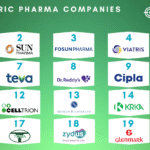August 04, 2025
2 min read
Key takeaways:
- Implementation also led to better overall cognitive function vs. controls across 11 years.
- Patient adherence to intervention protocol should include outside support.
Multidomain interventions for older adults at risk for dementia in Finland were linked to benefits to both daily living and cognition in as soon as 2 years which were extended to 11 years, particularly to those with higher adherence.
“To our knowledge, this is actually the longest follow-up that has happened in this level trial, so we hope that that can give useful insights,” Miia Kivipelto, MD, PhD, professor of clinical geriatrics at Karolinska Institute, said at the Alzheimer’s Association International Conference.

Data were derived from Kivipelto M, et al. Long-term adherence to lifestyle changes and association with cognitive change: Eleven-year results from the FINGER randomized, controlled trial. Presented at: Alzheimer’s Association International Conference; July 27-31, 2025; Toronto.
“So, we hope that that can give useful insights [as to] what happens with these values when you follow them up until 11 years,” she said.
Kivipelto and fellow researchers sought to investigate the long-term effect of adherence to a 2-year, multidomain intervention on lifestyle and cognitive change within the Finnish Geriatric Intervention Study for Prevent Cognitive Impairment and Disability (FINGER) clinical trial.
A total of 1,259 individuals from the general population (mean age, 68.8 years; 53.4% men) in Finland who were deemed to be at risk for dementia were included for the study, whose main intervention featured five “fingers” of nutrition, exercise, cognitive training, social activities and vascular risk monitoring, along with regular health advice, which addressed a range and vascular and metabolic risk factors for the study population. Enrollees were randomly assigned on a 1:1 basis to either the intervention or the control group.
For each participant, a composite “lifestyle index” score was compiled based upon several subdomains within four of the “fingers,” where each subdomain was awarded 0, 1 or 2 points with a ceiling of 24, where a higher score indicated better lifestyle. Evaluations were made at baseline, 1 year and 2 years, after which the primary outcome was global cognition. measured by a standard neuropsychological test battery (NTB).
Follow-up examinations were subsequently conducted at the 5-, 7- and 11-year marks.
According to results, the participation rate at the latest 11-year follow-up was 559 enrollees (69%).
“During the extended follow-ups, 5, 7, and 11 years, we also tried to have home visit and phone evaluation to really make it as easy as possible to capture all relevant information,” Kivipelto added. “(The) mean age is now 80 years, and we know that after 80 years, many health issues start to happen.”

Miia Kivipelto
Within the 2-year intervention window, Kivipelto reported that global cognition improved by 25%, memory by 40%, executive function by 83% and processing speed by 150% for those given the intervention compared with controls.
The mean NTB score among participants between baseline and year 2 of the intervention progressed from –0.01 to 0.2, indicating the intervention halts a typical pattern of decline observed in other memory clinic patients.
Conversely, between the 5-, 7- and 11-year follow-ups without the intervention as mediator, data show no significant differences between treatment groups, indicating those given the intervention drew significant benefit vs. those who did not.
Those who made it to the latest follow-up were younger, had a higher level of education, were mostly married, and had fewer chronic diseases, a better lifestyle index score and a higher NTB score.
“This long-term data give the first evidence that a multidomain intervention lasting for 2 years can have beneficial effects, both on lifestyle and cognition, several years after the intervention,” Kivipelto said. “Participants who had the higher adherence (are) those who had the sustained benefits.
Finding means to support adherence, she continued, would be beneficial for study participants, not only for themselves but also for development of new clinical trials, for which postintervention support protocols — including digital tracking tools — may be included.
For more information:
Miia Kivipelto, MD, PhD, can be reached at neurology@healio.com.









